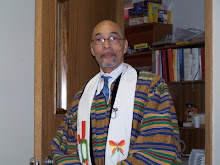Response of the Council of Bishops of the United Methodist Church to the “Certain aspects of the doctrine of the church” issued by Pope Benedict XVI
August 03, 2007
The Council of Bishops of The United Methodist Church has welcomed the Roman Catholic Church as a dialogue partner for over forty years. As sisters and brothers in Christ we are also living out partnership in God’s mission in places all around the world. The two ecclesial bodies have reached clarity on several major theological issues including “grace,” “sanctification” and “justification.” We find John Wesley’s “Catholic Spirit” as our starting and continuing point of dialogue.
We find nothing new or radically different from classical Roman Catholic ecclesiology in the Pope Benedict XVI’s “Responses to Some Questions Regarding Certain Aspects of the Doctrine of the Church,” June 29, 2007.
The Pontiff, because of all the writings since Vatican II, felt a need to clarify the phrase “that the One Holy Catholic and Apostolic Church subsists in the Catholic Church.” The meaning and definition of the word “subsists” was a major clarifying theme of the statement. In classical Catholic ecclesiology Benedict XVI affirmed with Vatican II that elements of “sanctification and truth” are operative in other churches, but since these churches are not in communion with Rome, they do not fulfill the nature of “Oneness.”
We, as heirs of Wesley, affirm in our liturgical introduction to the creeds that “where the Spirit of the Lord is, there is the one true Church, Apostolic and Universal.” We believe that apostolicity is based on the faithfulness of the Church through the ages rather than on historical succession.
As viewed by the Roman Catholic Church, what is The United Methodist Church? It is our understanding that all the positives remain in our relationship. According to Catholicism, we are baptized. We are brothers and sisters in Christ. We show evidences of sanctification, that is the holiness of the Church.
We lack in their view certain aspects of unity and catholicity. Nonetheless the Holy Spirit has “not refrained from using [us] as instruments of salvation,” as stated in Question Three of the Pope’s Responses.
We have a teaching of apostolic succession, but it hinges on faith, not historic leniarity.
We do not consent to the specific Roman view of Petrine succession, but we share with Rome the revered memory of the successors of the apostles, and understand ourselves to stand within that succession.
In their view, we are not “churches” in the full sense, because we lack from their viewpoint the mark of oneness and sacramental priesthood and the fullness of the Eucharist. We understand ourselves, by God’s grace, to share in the fullness of the Church through faithful ministry and mission, and the Table of the Lord. That is a difference we can continue to explore. Someday we pray that this difference will be overcome.
As United Methodists, we share in the pain of the brokeness of Christ’s Body and prayerfully long for unity around the Table of the Lord. Until then, we live out of John 17:11 and Jesus’ prayer that all his followers may be one, and we affirm Article VI of our Constitution compelling the Council of Bishops to lead the Church in the search for Christian unity. In that spirit, we look forward to our continuing dialogue with the Roman Catholic Church.
(Signed)
Bishop Janice Huie, President, The Council of Bishops
Bishop William B. Oden, Ecumenical Officer, The Council of Bishops
Bishop Ernest Lyght, Secretary, The Council of Bishops
Bishop Roy I. Sano, Executive Secretary, The Council of Bishops
Thursday, August 9, 2007
Subscribe to:
Post Comments (Atom)

No comments:
Post a Comment